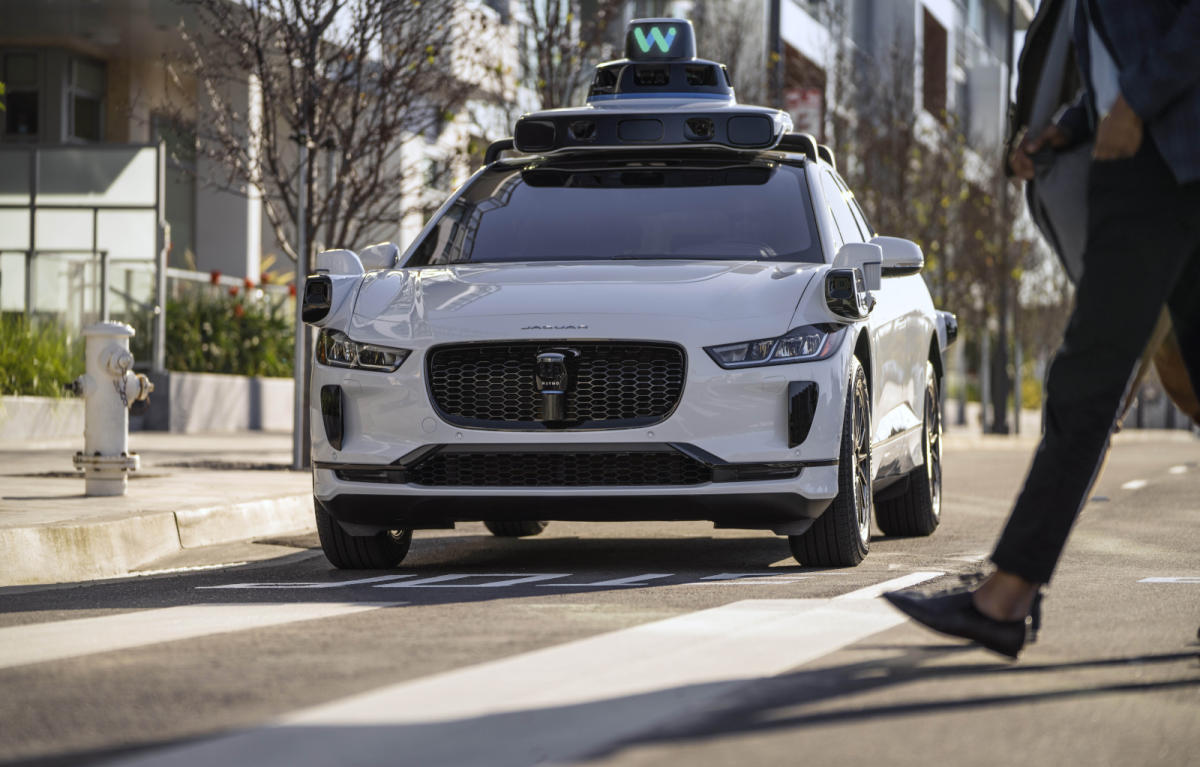Last year, two Waymo robotaxis in Phoenix “made contact” with the same pickup truck that was in the midst of being towed, which prompted the Alphabet subsidiary to issue a recall on its vehicles’ software. A “recall” in this case meant rolling out a software update after investigating the issue and determining its root cause.
In a blog post, Waymo has revealed that on December 11, 2023, one of its robotaxis collided with a backwards-facing pickup truck being towed ahead of it. The company says the truck was being towed improperly and was angled across a center turn lane and a traffic lane. Apparently, the tow truck didn’t pull over after the incident, and another Waymo vehicle came into contact with the pickup truck a few minutes later. Waymo didn’t elaborate on what it meant by saying that its robotaxis “made contact” with the pickup truck, but it did say that the incidents resulted in no injuries and only minor vehicle damage. The self-driving vehicles involved in the collisions weren’t carrying any passenger.
After an investigation, Waymo found that its software had incorrectly predicted the future movements of the pickup truck due to “persistent orientation mismatch” between the towed vehicle and the one towing it. The company developed and validated a fix for its software to prevent similar incidents in the future and started deploying the update to its fleet on December 20.



Why is an update called a recall?
Because Tesla was fixing significant safety issues without reporting it to the NHTSA in a way that they could track the problems and source of the issue. The two of them got into a pissing match, and the result is that now all OTA’s are recalls. After this, the media realized that “recall” generates more views than “OTA”, and here we are.
I think it’s slightly more nuanced - not all OTAs are recalls, and not all recalls are OTAs (for Tesla). Depending on the issue (for Teslas), the solution may be pushed via an OTA in which case they “issue a recall” with a software update. They’re actually going through this right now. For some other issues though, it’s a hardware problem that an OTA won’t fix so they issue a recall to repair the problem (ex: when the wiring harness for their cameras was fraying the cables).
This is 100% from the NHTSA shenanigans, though.
What typically happens when a recall is issued for other vehicles? Don’t they either remove and replace the bad part or add extra parts to fix the issue?
How is removing bad code and replacing it with good code or just adding extra code to fix the issue any different?
Do you want to physically go somewhere?
Kinda, as the word implies. If it’s a software update, call it that; the car’s not going back to the shop/manufacturer.
It sounds like location is important for some reason.
Here’s an example of why I don’t like that they’re called recalls when it’s just a system update, if you have a recall on a food item, is there some way to fix it aside from taking it back (to be replaced) or throwing it away?
When there’s a security patch released on your phone, do we call it a recall on the phone? Or is that reserved for when there a major hardware defect (like the Samsung Note fiasco)
I think the difference in the case you mentioned is that with a car they use recall because it could be dangerous to keep using it as is.
Fair, it just seems like there should maybe be a new word for this era where an OTA update is all that’s needed.
What if you consider its the software/firmware getting recalled and not the vehicle itself? Then it’s all perfectly cromulent.
The fleet of cars is summoned back to the HQ to have the update installed, so it causes a temporary service shutdown until cars are able to start leaving the garage with the new software. They can’t do major updates over the air due to the file size; pushing out a mutli-gigabyte update to a few hundred cars at once isn’t great on the cellular network.
Actually there have been several Tesla “recalls” that were just simply OTA updates.
They often are. Many recalls for other manufacturers are similar. They don’t actually buy back the cars and crush them.